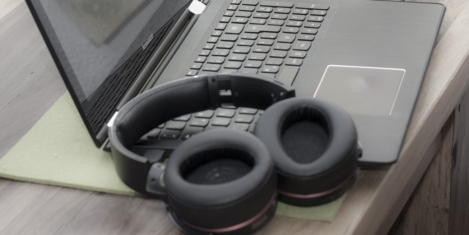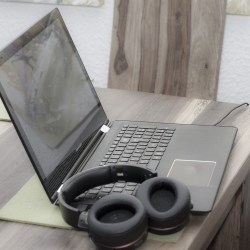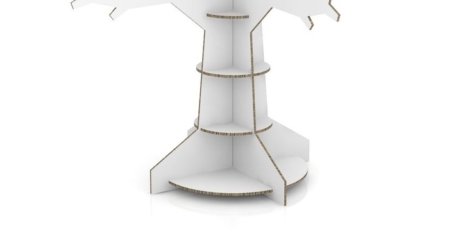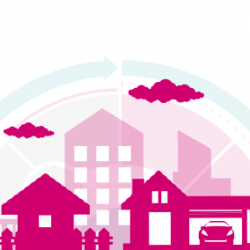To provide the best experiences, we use technologies like cookies to store and/or access device information. Consenting to these technologies will allow us to process data such as browsing behaviour or unique IDs on this site. Not consenting or withdrawing consent, may adversely affect certain features and functions.
The technical storage or access is strictly necessary for the legitimate purpose of enabling the use of a specific service explicitly requested by the subscriber or user, or for the sole purpose of carrying out the transmission of a communication over an electronic communications network.
The technical storage or access is necessary for the legitimate purpose of storing preferences that are not requested by the subscriber or user.
The technical storage or access that is used exclusively for statistical purposes.
The technical storage or access that is used exclusively for anonymous statistical purposes. Without a subpoena, voluntary compliance on the part of your Internet Service Provider, or additional records from a third party, information stored or retrieved for this purpose alone cannot usually be used to identify you.
The technical storage or access is required to create user profiles to send advertising, or to track the user on a website or across several websites for similar marketing purposes.
 Originally published in December 2014. Homeworking seems to have become a bit of a hot topic this year, but one sentence published on the www.gov.uk website brought a cold sweat to the brows of many managers and employees across the United Kingdom. “From 30 June 2014, all employees have the legal right to request flexible working – not just parents and carers.” (more…)
Originally published in December 2014. Homeworking seems to have become a bit of a hot topic this year, but one sentence published on the www.gov.uk website brought a cold sweat to the brows of many managers and employees across the United Kingdom. “From 30 June 2014, all employees have the legal right to request flexible working – not just parents and carers.” (more…)








 Now, more than ever, both at home and at work, we need to be surrounded by people we can rely upon and trust as we ride the waves of uncertainty. Over the past year, we have learnt that priorities and targets can be shifted in the blink of an eye which has increased the importance of flexibility, support networks and relying on each other. This is just as relevant in business, including who we choose as strategic partners and how we contract with those partners.
Now, more than ever, both at home and at work, we need to be surrounded by people we can rely upon and trust as we ride the waves of uncertainty. Over the past year, we have learnt that priorities and targets can be shifted in the blink of an eye which has increased the importance of flexibility, support networks and relying on each other. This is just as relevant in business, including who we choose as strategic partners and how we contract with those partners. 
 Despite the financial hardship wrought by COVID-19, half of employers (49 percent) don’t have a financial wellbeing policy. This is according to the latest
Despite the financial hardship wrought by COVID-19, half of employers (49 percent) don’t have a financial wellbeing policy. This is according to the latest 
 A new study on recruitment and workforce trends has crowned London as the world’s most desirable city to work in, with the UK capital holding onto the top spot, despite uncertainty around Brexit and the ongoing Covid-19 pandemic.
A new study on recruitment and workforce trends has crowned London as the world’s most desirable city to work in, with the UK capital holding onto the top spot, despite uncertainty around Brexit and the ongoing Covid-19 pandemic. 
 Someone really should have warned HR and people leaders that we needed to strap ourselves in, right? Even then, would we have ever been completely prepared for the rollercoaster ride organisations have experienced because of the pandemic? As part of Sage’s research, ‘
Someone really should have warned HR and people leaders that we needed to strap ourselves in, right? Even then, would we have ever been completely prepared for the rollercoaster ride organisations have experienced because of the pandemic? As part of Sage’s research, ‘
 People working from home during the pandemic are experiencing higher levels of stress and withholding mental health conditions from their employer, for fear of a negative impact on career progression, according to a new
People working from home during the pandemic are experiencing higher levels of stress and withholding mental health conditions from their employer, for fear of a negative impact on career progression, according to a new 
 We need to talk about Red Industries. More specifically we need to talk about the firm’s Walley’s Quarry landfill site in the town of Newcastle-under-Lyme.
We need to talk about Red Industries. More specifically we need to talk about the firm’s Walley’s Quarry landfill site in the town of Newcastle-under-Lyme.
 The much discussed idea of Zoom fatigue turns out to be a real phenomenon according to new peer reviewed research from Stanford academics. The study published in the American Psychological Association’s journal
The much discussed idea of Zoom fatigue turns out to be a real phenomenon according to new peer reviewed research from Stanford academics. The study published in the American Psychological Association’s journal 


 The UK Green Building Council (
The UK Green Building Council (
 With the Government setting out its roadmap for the lifting of Covid-19 restrictions, workers are set to return to offices later this year. However, new working practices mean they will still split their time between the office and home.
With the Government setting out its roadmap for the lifting of Covid-19 restrictions, workers are set to return to offices later this year. However, new working practices mean they will still split their time between the office and home. 








March 6, 2021
Well, at least nobody is whinging about open plan offices anymore
by Mark Eltringham • Comment, Flexible working, Technology, Workplace design
(more…)